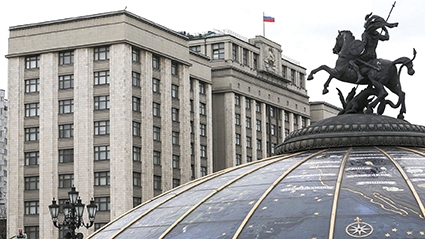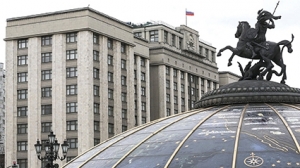Georgia Responds to Duma's Step to Investigate "Ossetian Genocide by Georgians"
Georgian Parliament Speaker Archil Talakvadze says “Georgian history can be read, but not rewritten or changed.”
He made the statement in response to information released by the Russian State Duma on the creation of a special working group to study “the genocide of the South Ossetians in 1920 by Georgians.”
“This is not the first attempt from the Russian side to revise Georgian history… Our choice is not to seek new conflicts or to open old wounds, but to find common ground with Ossetians and Abkhazians," he stated.
The Speaker added that the use of historical themes for political conjuncture is risky, especially in such a region as the Caucasus.
“We consider this kind of short political vision as unpromising and dangerous,” he stressed.
Vyacheslav Viktorovich Volodin, a Russian politician who has served as the 10th Chairman of the State Duma since October 2016, stated that the legislative body has set up a working group which will discuss the appeal of the breakaway South Ossetia’s “parliament” asking the Duma to recognize the “genocide of the South Ossetians in 1920 by Georgia.”
He said the group will be led by Viktor Vodolatsky, First Deputy Chairman of the Committee on CIS Affairs, and after it studies the issue and drafts a proposal, the State Duma will return to the matter and make a decision.
“It is important for the Russian lawmakers that the decision be objective and everyone realize that if the people of South Ossetia suffered a genocide, it would be right to acknowledge it and support our colleagues in South Ossetia,” he noted.
Volodin said much depends on what kind of arguments and materials will be presented and whether or not Georgia will cooperate.
“We hope to cooperate with Georgia during the consideration of the South Ossetian appeal regarding the recognition of the Ossetian genocide,” he added.
Russian leadership, the State Duma and the Federation Council, were addressed by de facto South Ossetian parliament regarding the “genocide” issue on July 31. The address specifies that "the 1920 events were not appropriately assessed, and the masterminds and those behind the genocide of South Ossetians were not held accountable."
Moreover, it reads that after breakaway South Ossetia declared its right to self-determination and ascension to Soviet Russia, "the Georgian government sent their units to suppress South Ossetia" in June 1920 and "the Georgian troops eliminated most of the residential communities in South Ossetia."
"Several thousand people were killed, which was between 8 and 25% of the whole population, according to different assessments,” it says, adding that in 1989-1992, Georgia "again attempted ethnic cleansings against the Ossetian people, but the Russian interference in 2008, which forced Georgia to [declare] peace, prevented the people of South Ossetia from being completely wiped out.”
The conflict between Ossetians and Georgians started as a social dispute but rapidly turned into a conflict after the uprising of Ossetians in breakaway Tskhinvali region in 1918 which culminated in 1920 when Georgian troops quelled the resistance. It was incited and supported by Bolsheviks from Russia while the Georgian government at the time was dominated by their opponents - the Mensheviks.
The conflict resulted in the loss of thousands of lives on both sides, but the approximate number is said to be around 2-6 thousand casualties.
In contrary to the position of the breakaway South Ossetian authorities, Georgia denies the notion of this being genocide and points to the destructive and destabilizing role played by Russian Bolsheviks in the conflict.
By Thea Morrison
Image source: duma.gov.ru












